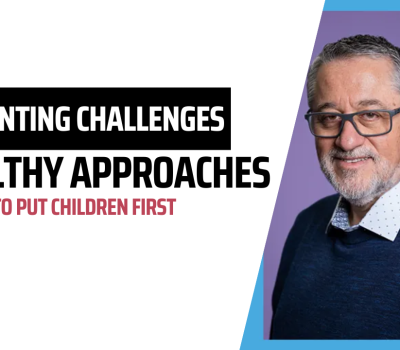
Navigating the Complex World of
Co-Parenting During and After Divorce
Learning to co-parent effectively is another new skill you will hone over time, it will present its own set of complexities, with no one-size-fits-all approach. As you navigate this new chapter, it’s essential to recognize the pros and cons of different co-parenting styles and, more importantly, how to adapt them to fit your unique situation. In this newsletter, we’ll explore these dynamics and offer some insights on maintaining your peace of mind along the way.
The Different Types of Co-Parenting
Pros: This approach allows each parent to have their own set of rules and routines during their parenting time, which can reduce conflict. It’s particularly effective when communication between parents is strained.
Cons: The lack of consistency between households can be confusing for children, and it may lead to feelings of instability.o your email.
Cooperative
Co-Parenting:
Pros: This style involves a high level of communication and collaboration between parents. Decisions are made together, creating a more stable and unified environment for the children.
Cons: It requires a significant amount of effort and emotional maturity from both parents, which can be challenging if the relationship is still tense or unresolved.

Hybrid Over Time
Parallel parenting might be used during the early stages of divorce, with a transition to cooperative co-parenting as tensions ease. It can take time and experimentation to find the right balance, and adjustments may be necessary as circumstances change.
Choosing Your Battles
One of the most challenging aspects of co-parenting is learning to choose your battles. It’s important to recognize that you no longer have control over your ex’s actions or how they choose to parent when it’s their time with the kids. This can be a difficult pill to swallow, especially if you were not aligned in your parenting styles during the marriage. If you couldn’t get them on board with your ideas when you were together, you’ll have even less leverage now.
Instead of focusing on what your ex is or isn’t doing, concentrate on what you can control: your own actions, how you communicate with your children, and the environment you create for them when they’re with you. By picking your battles wisely, you can conserve your energy for the things that truly matter, like maintaining a strong and healthy relationship with your children.
Handling Extremes: The Over-Involved Ex vs the Hands-Off Ex
Co-parenting often involves dealing with extremes—either an ex who is overly involved and controlling or one who is hands-off and disengaged. Both scenarios present unique challenges, and finding peace with your ex’s actions can help prevent the anger that only ends up hurting you in the long run.
The Over-Involved and Controlling Ex
Pros: Having a co-parent who is deeply involved in your children’s lives can provide a sense of stability and consistency. Their involvement may mean they are genuinely invested in your children’s well-being.
Cons: On the downside, this type of ex can be difficult to deal with if they are controlling or try to push their agenda at every turn. This can lead to power struggles, where your opinions and decisions may be discarded or constantly challenged.
To manage this, it’s crucial to set and maintain your own strong boundaries. In addition, teaching your children how to listen to their own hearts and develop their own abilities to define and calmly communicate boundaries is essential. Remember, as long as your kids have one healthy, strong parent who makes them feel unconditionally loved and supported, they will thrive.
The Hands-Off, Disengaged Ex:
Pros: On the other hand, if your ex is hands-off, you may find that you have more freedom to parent as you see fit, without constant interference. This can reduce conflict and give you the space to make decisions that align with your values and beliefs.
Cons: However, this also means that all the responsibility falls on your shoulders. You’ll need to step up and be the solid parent your kids need, which can be demanding. It requires you to invest time in researching and making informed decisions, possibly seeking advice from friends, family, or professionals when facing big decisions.
Additionally, your children might feel hurt by the lack of effort from the other parent, and this is something you’ll need to help them navigate. Their disappointment can be challenging to address, but with your support, they can still feel loved and secure.

Avoiding the Comparison Trap
It’s easy to fall into the trap of comparing your co-parenting situation to others, especially when you see what seems like an ideal arrangement working for someone else. However, as the saying goes, “Comparison is the Thief of Joy.” Every family has its own unique dynamics, challenges, and strengths. What works for one family might not work for another, and that’s okay.
Your journey is your own, and it’s crucial to focus on what works best for your children and your situation, rather than striving for some idealized version of co-parenting. Remember, the goal is to create a healthy and supportive environment for your children, even if it looks different from someone else’s.
Closing Thoughts
Co-parenting is not an easy task, but with the right mindset and approach, it’s possible to create a positive and nurturing environment for your children. Remember, it’s not about being perfect or achieving some ideal; it’s about doing what’s best for your family and finding peace in the process.
Thank you for being part of our community. We’re here to support you every step of the way as you navigate this journey. If you need any additional support, please reach out to me and please feel free to forward this email to anyone you think might benefit from hearing some of these tips.

We would love to hear anything from you Leaving Feedbacks
Divorce coaching offers personalized support during a challenging life transition, guiding individuals through emotional turmoil and practical decisions. Our feedback highlights the ultimate value of compassionate listening and tailored strategies that empower clients to navigate the divorce process with confidence. By sharing these insights, we can effectively convey how our services can transform struggles into opportunities for growth, encouraging those unfamiliar with us to seek the support they need.






